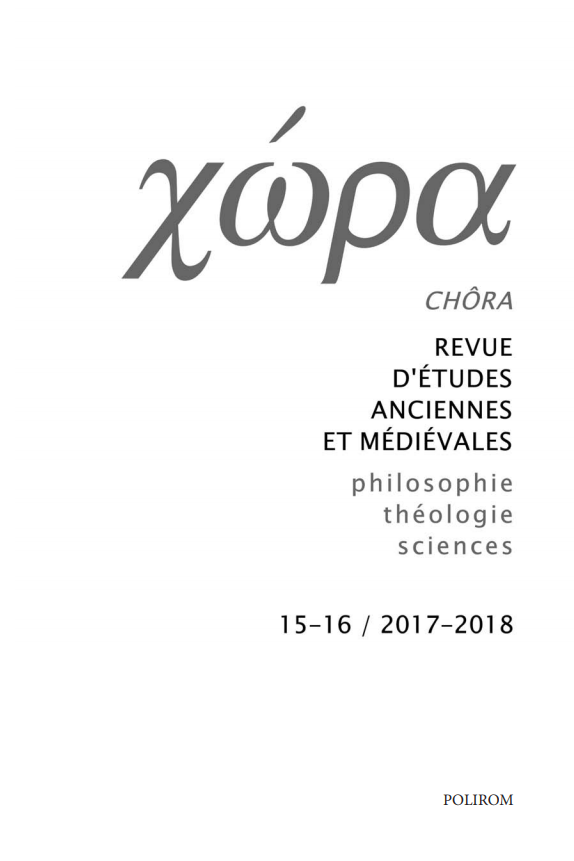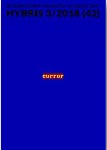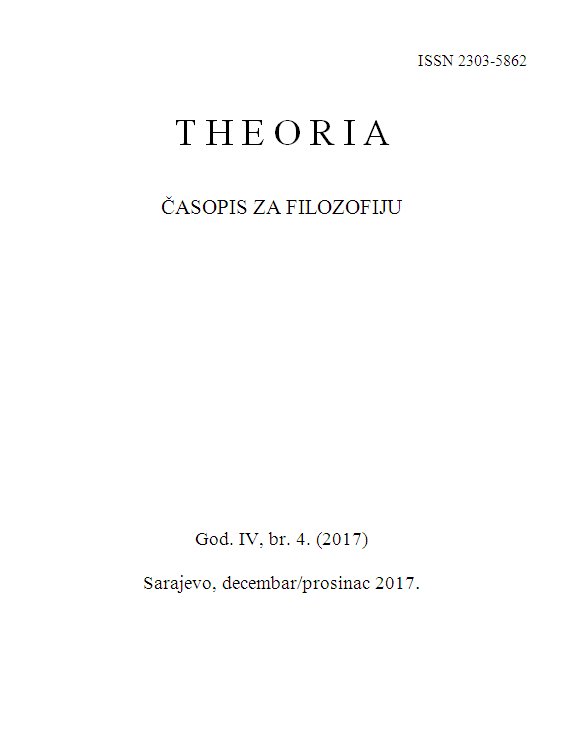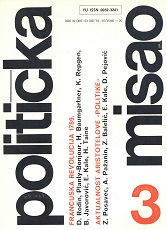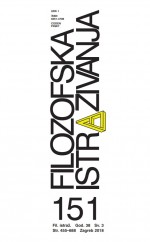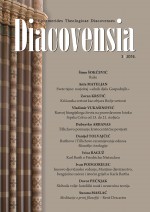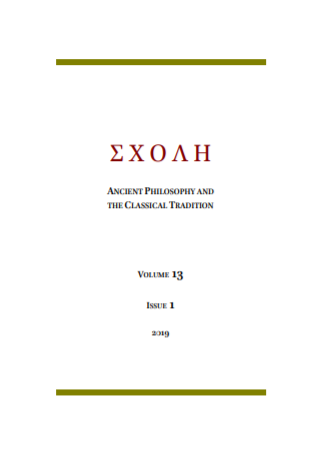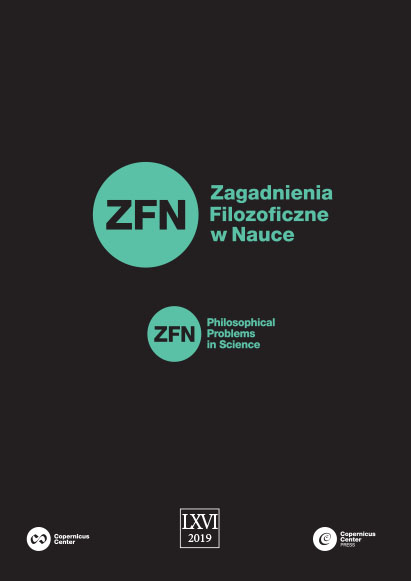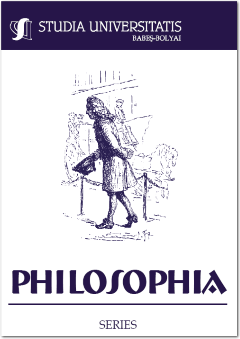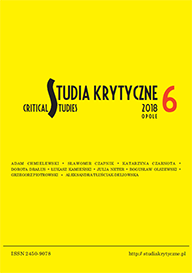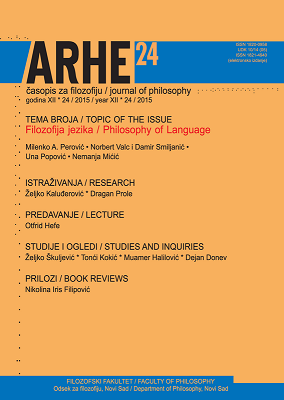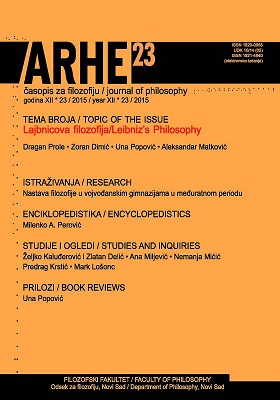Author(s): Željko Kaluđerović,Zlatan Delić / Language(s): Serbian
Issue: 23/2015
Western civilization, whose vision of cosmos is still prevailingly anthropocentric, fi nds the origin for its standing points in Judeo-Christian tradition and in the views of ancient Greek philosophers. In searching for antecedents of the vision of man as a being having a special status among other living beings, the focus of the study in this paper will be on the Aristotle’s corpus, i.e. on preserved fragments of Presocratics. There is, primarily, a high level of agreement among historians of philosophy that the Stagirites, with his imperative for a clear distinction between the practical wisdom, i.e. thinking and sensation, crucially contributed to the establishment of modern civil epoch based on logocentrism and anthropocentrism. The authors, then, identified that indications of anthropocentric approaches, despite structural hindrances of their concepts, may be found in Pythagoreans, Parmenides, Empedocles, Anaxagoras and Democritus. However, the Presocratic who most clearly anticipated the letter anthropocentric views was Alcmaeon from Croton. His opinion that the man is different from other living beings as the only being that is capable of understanding, while other living beings receive sensations but do not understand, represents, the authors concluded, an indication of both Aristotle’s and the statements of numerous subsequent thinkers that logos abilities may be allocated only to humans and that the man has ontological primacy in relation to other living beings.
More...


